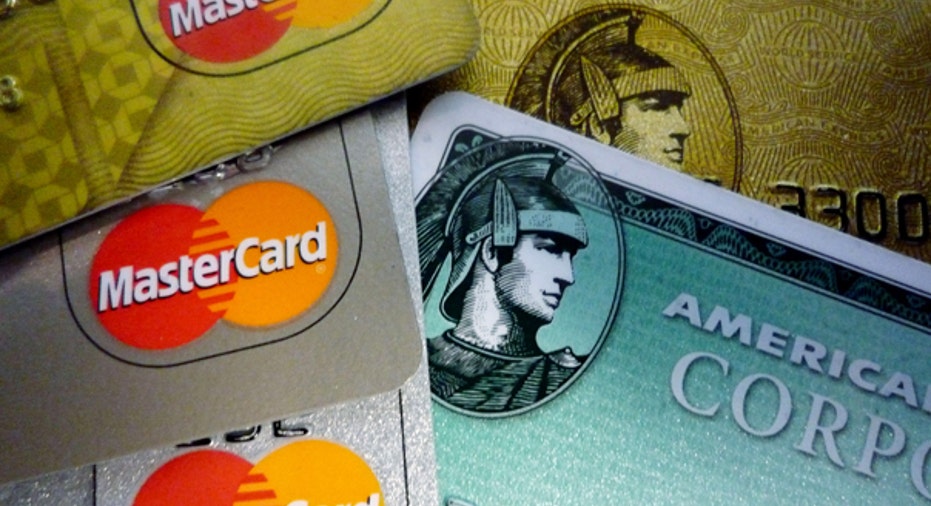Five Steps to Lose Debt, Get Credit Fit

Getting in shape for bathing suit season can be just as daunting as paying off outstanding credit card debt. If you adopt a regular exercise routine and reduce your calorie intake, however, you can walk into a dressing room with confidence. That same determination can help you get your finances in shape.
Here's how to start a healthy financial fitness routine that will help you shed some of that unwanted debt and learn to use credit wisely.
1. Set small goals. As much as you would like to, you can't lose 20 pounds in a week -- or years of debt in one month. Don't be intimidated, though. tart by Your best chance of getting all the way out of debt starts with taking a realistic picture. "Before you even set up goals, see where you stand," says Scott Gamm, personal finance expert and founder of HelpSaveMyDollars.com, a consumer education site. Tally up the balances on each of your credit cards, your student loans and any other debt you have, and then figure out how much you can reasonably afford to throw toward this debt, he says.
Once you've done your number crunching, take a page out of weight loss plans that incorporate a jump-start period designed to shed a few pounds early on and encourage you to move forward. "Work to pay your smallest debt off first for a boost in your financial morale," suggests Jennifer Streaks, financial columnist and pundit on MSNBC and Fox. "It can get your motor running by seeing that sense of accomplishment."
2. Change your mindset. Some people turn to ice cream, others to online shopping. If you're an emotional spender or simply like hitting the mall out of boredom, you need to find a replacement for your retail therapy, stat. "You have to look at credit differently, especially in this economy," says Streaks. "It's not just buying a pair of shoes on sale. You're still going to have that interest payment long after the shoes are in the back of the closet," she says. In other words, learn this mantra: "Credit is not my excuse to have a good time going shopping."
Gamm's advice is similar to how some dieters post a photo of their leaner days on their refrigerator. "Write down whatever amount of debt you're in and put that on top of your credit card in your wallet to remind you of your goal when taking your card out," he says.
3. Avoid "empty" spending. Just as empty calories do nothing for you, neither does empty spending. Financially vulnerable people should avoid automatic bill payments for optional spending such as cable, phone and gym memberships, says Streaks. "Every month, have that bill come to you and touch it. If you're seeing what you are paying, you'll think about it," she says. You might realize you haven't even been to the gym in four months or that your platinum movie channel package is a waste of money.
Gamm agrees, adding that it pays to get on the phone and try to lower your bills whenever possible. "If you've been a good customer, call up and ask about loyalty credits, or consider canceling and going to a different provider," he says. Another option when it comes to your credit payoff plan is to look into balance transfers that can save you money on interest. The key is that you must reach your payoff goal before the zero- or low-interest period is up.
4. Learn to use credit in moderation. One cannot live on celery sticks alone forever and in our online spending age, credit cards are practically a given, says Gamm. "And if you're a young person, you have to use credit cards to build credit," he adds. Resisting the urge to go on a credit binge is vital. "Your goal should be to pay it off in full at the end of the month," he says.
Streaks says you have to find a method that works for your lifestyle, pointing out that some people are better served by adopting a cash-only policy. No matter your preference, however, she notes that it's important to learn to live without instant gratification. "If you know you need a big purchase, you need to plan for that. Do the research and find the best price," she says. And then save up!
5. Create a support system. Everyone likes to go out and have fun, but if you have friends with expensive tastes, you may have to sacrifice a few events here and there. "It's a tough balance because you don't want to seem a cheapskate, but something's got to go if you're really serious about getting out of debt," says Gamm. It's also likely that your friends have their own financial issues, and might even be grateful if you suggest keeping entertainment costs to a minimum.
Support in your own household is imperative, too. Just as going to the gym is much more successful when you have a friend to keep you accountable, the same is true for sticking to a financial plan when you have a family. "You don't want to portray a lifestyle to your kids or spouse that's not possible," says Gamm. "It's important for everyone to be on board with family's goals."
Once you put your financial fitness plan into action, you'll watch your debt shrink and be on your way to the best financial shape of your life.



















